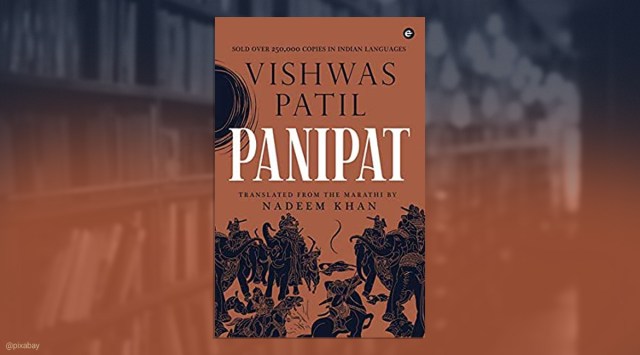Amravati, MAHARASHTRA :
Khan, whose last worked on the translation of Patil’s Panipat, a voluminous Marathi language classic published in 1988, said translating into English from any of the Indian languages is like moving into a different culture as idioms, emotional framework and cultural resonances change with language.

In 2018, Khan had translated two novels of Dongare, a Sahitya Akademi Yuva Puruskar winner who is regarded as an avant garde writer in regional literature.(Source: Amazon.in | Designed by Gargi Singh)
Being true to the word and spirit of the original work while making it resonate with the English reader is always a challenge, says writer Nadeem Khan, who has been translating the works of celebrated Marathi authors such as Prabhakar Narayan and Vishwas Patil.
Khan, whose last worked on the translation of Patil’s Panipat, a voluminous Marathi language classic published in 1988, said translating into English from any of the Indian languages is like moving into a different culture as idioms, emotional framework and cultural resonances change with language.
“My job is only to convey those ideas and themes in another language with the greatest probity and as attractively as possible,” Khan told PTI in an email interview. According to Khan, authors use different dialects of the language to describe their characters but it is tricky to transform something that has word-play involved, like in the case of another celebrated Marathi writer Avadhoot Dongare.
“Hence, being true to the word and spirit of the original work and yet making it resonate with the English reader is always a challenge. But my good fortune has been that I have grown up reading great works of translation of Tagore, Ismat Chughtai, Manto, Rajinder Singh Bedi, Vijay Tendulkar and that helped me find the right strategy for my work,” Khan said.
In 2018, Khan had translated two novels of Dongare, a Sahitya Akademi Yuva Puruskar winner who is regarded as an avant garde writer in regional literature. They were published in a single book titled, The Story of Being Useless + Three Contexts of a Writer. While translating Patil’s Panipat, the 69-year-old retired English professor had “serious difference of opinion” with the author, who is also his friend.
“I could so clearly see why it was such a big hit with the Marathi readers, but I also knew that a verbatim translation would take it nowhere among the English readers. The novel was a thrilling historical narrative, well-researched, but it appealed to the self-regard of the Marathi readers. So, my challenge was to retain all its epic qualities, its thrill and yet ensure that it targeted the universal admiration for integrity and courage,” Khan said.
Khan said he wanted the book to stand apart as an original historical-thriller in English while also carrying the aroma of the soil in which it was located. Comparing the styles of Marathi writeres such as late Prabhakar Narayan alias Bhau Padhye, Patil and Dongare, Khan, who lives in Amravati, Maharashtra, said each translation comes with a unique set of challenges.
“The texture of their language is very different, their readership is different, their well-springs and motivations are different. With Padhye, obviously, I didn’t have the facility of consulting him, but I found myself very comfortable with his philosophical and literary orientation and derived a different pleasure in offering him to the English readers.” Dongare, he said, has already made a name for himself in the world of regional literature.
“When I read his novels, I was absolutely sure that he had to be made available to a wider discerning readership. He was experimenting with the language and with the narrative style. “Translating him required me to catch and project the culture in which his characters were operating, very often the culture of the Pune streets, and to find the adequate register in English. It was quite challenging, and therefore very rewarding too.”
Khan said he tweaks the original writing to make it more English-reader-friendly but only after consulting with the original author as they have the last word. “I never allow myself to forget that the original work is theirs, the ideas are theirs, the themes are theirs, the messages are theirs, in fact, the reputation at stake is theirs, it’s their neck on the block…Their complete agreement with my effort is of paramount importance.”
source: http://www.indianexpress.com / The Indian Express / Home> News> Books & Literature / by PTI / January 06th, 2021








